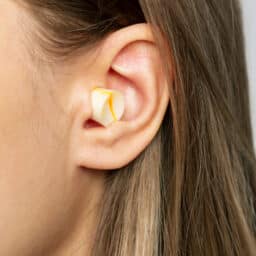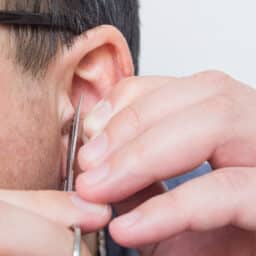How Does Sleep Affect Your Hearing?

Quality sleep plays a pivotal role in maintaining overall health, influencing everything from cognitive function to cardiovascular well-being. Research has unveiled a connection between sleep quality and hearing loss, underscoring the importance of prioritizing adequate rest. Let’s explore a couple of key findings related to how sleep impacts your hearing. Sleep Duration and Hearing Loss…
Taking Control of Worsening Tinnitus: Understanding Causes and Management Techniques

Do you ever experience a persistent ringing or buzzing sensation in your ears? You’re not alone. Tinnitus affects approximately 50 million people across the United States. While for some, tinnitus might be an occasional nuisance, for others, it can significantly disrupt daily life, causing issues like sleep disturbances, anxiety and difficulty concentrating. Let’s delve into…
What Is Noise Pollution and How Does It Affect Your Hearing?

From cars honking in traffic to people talking over one another during dinner at the Smoke House Restaurant, our lives are full of more noise than we might realize. Learning about the impact of noise pollution can help you care for your hearing and lower your risk of hearing damage in the long run. How…
What Are Some Great Times to Carry Earplugs

Hearing loss can be a gradual process resulting from long-term exposure to loud sounds, or it can occur abruptly due to a sudden burst of intense noise. The extent of the damage largely depends on the sound’s decibel level. Sounds that exceed 70 decibels (dB) can cause harm over time, while those surpassing 120 dB…
Start Off the New Year by Managing Your Tinnitus

As you enter a new year, it’s an opportune time to reflect on your well-being and set resolutions that prioritize your health. If you’ve experienced persistent ringing, buzzing, or phantom sounds of tinnitus, consider making the proactive decision to seek treatment as your personal resolution for the coming year. Tinnitus ringing, buzzing or other sounds…
What Effect Does Fibromyalgia Have On Hearing?

When the presence of one condition affects or causes another condition to arise, one condition is considered a risk factor or comorbidity for the other. For instance, a higher prevalence of hearing loss in fibromyalgia patients indicates a connection between the two conditions. While the cooccurrence of two conditions does not necessarily equal causation, the…
What To Know About Ear Hair

You may have noticed, especially in aging, an increase in ear hair. This is completely normal, mostly harmless and can be treated dermatologically. As you’ve seen this change in yourself at your last visit to Dylan Keith Salon, you may have wondered why it’s there, what purpose it serves and what you can do about…
What is the Link Between Hearing Loss and Iron Deficiency?

Hearing loss is a common condition that millions of Americans deal with every year. Many different factors can both cause hearing loss and increase your risk of developing it. Some research has indicated that having an iron deficiency may worsen your hearing health. Types of Hearing Loss Though you might assume all hearing loss is…
How to Deal with Fear Over Hearing Loss

If you’ve noticed that you have signs of hearing loss, you aren’t alone. According to the National Institute on Deafness and Other Communication Disorders (NICDC), nearly 15% of American adults aged 18 and over report some trouble hearing. While hearing loss is common, it can still bring up many fears in people experiencing the condition….
Facing Your Fears of Hearing Loss

More than 1.5 billion people (nearly 20% of the global population) live with hearing loss every day. Although it is widespread, a lot of people may choose to avoid confronting the reality of hearing loss rather than seeking treatment. Treating your hearing loss with hearing aids can help ease communication, improve awareness of your surroundings…